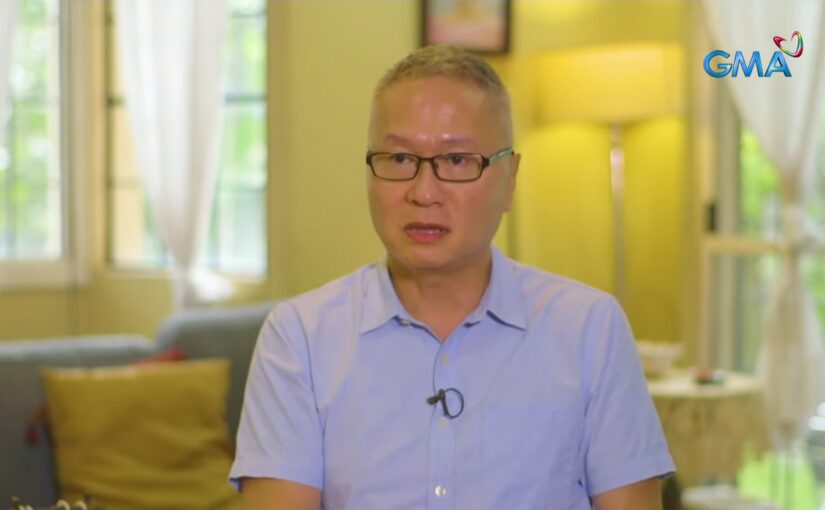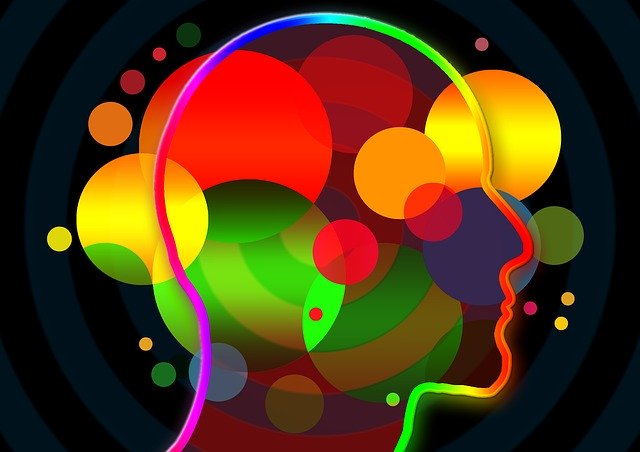Tag: Anxiety
Coping with Tunnel Vision During a Crisis
by Nathan Chua
I am quite certain that most if not all of you, my readers, have experienced being caught in a difficult situation and having to focus mainly on the problem at hand. When there is a crisis, we often develop tunnel vision and end up doing greater harm to ourselves and others. For example, when your teenaged child comes home really late, tunnel vision can lead a parent to think that the child doesn’t care and that the only solution is to show your anger in order to keep them in line. These situations don’t usually end up well. Often, what could have been a moment of tenderness and bonding, turns into a messy fight.
Now don’t get me wrong. Tunnel vision is not always harmful. There are plenty of times when you and I need it. If your toddler suddenly feels the urge to go towards an open window and tries to climb over it, tunnel vision will help you get your child out of that precarious situation. In these instances, following the dictates of your mind works well for you and the survival of your child. If there was a wild animal chasing you thinking you are prey, tunnel vision is what you need in that moment to come out of it alive.
The topic I’d like to discuss here is about the times when developing tunnel vision and instantaneously acting on it, may not be a move in our best interest. A timely example would be that incident when we saw a famous actor in Hollywood come up to a comedian in front of millions of people watching the Annual Academy Awards for motion pictures. We can say that Will Smith developed tunnel vision in the heat of the moment. Although the context of the moment would certainly make hurt feelings understandable, standing up and committing a violent act is the proverbial solution that becomes the problem.
On a larger scale, think about the war in Ukraine. That tunnel vision can cause egregious acts done against our fellow humans. To use an example closer to home, how many times have we seen road rage cause tunnel vision, rendering someone who has no record of violence helpless enough to physically or emotionally harm or even kill someone for a slight.
So here are some ways that I borrowed from Dr. Steven Hayes’ book, “A Liberated Mind,” that could be helpful for us to cope with tunnel vision when it occurs. In my opinion, it is but natural for us to get into that mode of mind, it only takes some mindfulness in the moment to avoid as I had mentioned earlier, making the solution become the problem.
- Try to sense in your body where you feel this current issue is affecting you. Is it a heaviness in the chest? Does it feel like a weight on your shoulders? Tightness in your head? Notice these sensations and give it a good clean yes. Give yourself a minute to experience this without defense.
- Have you seen anyone you cared for in your family who had suffered something like this? Recall that moment and see if you can purposefully witness their struggles with compassion.
- Say yes to the thoughts that come with this problem. See if you can drop any kind of struggle with it and notice them for what they are, just thoughts.
- Is there something here that you can learn from if you project yourself into the future? Is there something in this experience that can help you learn something about your life’s journey?
- See if you can find out why this is so painful for you. Behind anything that hurts you deeply, there could be the values you hold dear. Maybe you’re hurt because you care about honesty or openness. Maybe you are angered because of your love for justice. What could be the loving and caring thing to do at this moment?
- If this was a story in a book you were writing about a hero’s journey, what could this moment be for your hero? How can this moment make your hero become wiser and more alive?
- Do you have other memories attached to this present problem of yours? Can you willingly say yes to just one more of these?
- If there’s someone that you blame for this, can you think of times that you may have done something similar to what they’ve done to you, even if it was in a less hurtful way? Sometimes we point our problems towards other people and avoid seeing how we have in the past behaved in the same way.
- If you had a friend who had this problem, how would you feel towards them? What would you suggest they do?
- You have picked something that your mind says you have to say no to or that you shouldn’t have. Is there something that’s hard for you to give up in order to let go of that no? Perhaps saying yes to the hurt feelings would indicate that you are a weak person. Can you give up that struggle with that thought and allow that to be there just as a thought?
- If you could have these thoughts and feelings without having to fight them, what would you be able to accomplish in your life? Think about taking this along for the ride of your life or the journey you set out for yourself.
That’s all for now folks. Hope this will give you a wider perspective every time your mind gives you that urge to go into tunnel vision.
Living with Obsessive Thoughts
By Nathan Chua
If you take a closer look at the title of this article, you might see that one word is not capitalized. First of all, it’s what I learned in English composition about how titles should be written. Prepositions are supposed to remain in the lower case when inserted into a title. Secondly and coincidentally, it is probably what would make the approach I use a bit different from what you would mostly encounter in other mainstream therapies. I used the word, “with.” I could have written something like, “Living FREE of your Obsessive Thoughts,” or “Living with LESS Obsessive Thoughts,” or “OVERCOMING Obsessive Thoughts,” or “MANAGING Obsessive Thoughts.” However, that would just take me to the same agenda that is, as I said, mostly what you would expect from the mainstream.
The “”with” part is a big part of what I do in Acceptance and Commitment Therapy or Training (ACT). You might now be worried or your mind is begging you to ask, “Are you into some kind of torture method?…Don’t you have a way of bringing me at least some relief from these obsessive thoughts? Well, of course we all want relief, and that’s pretty much why people come to see a shrink. But it’s in the “how” you get relief that makes it problematic.
The automatic reaction which is logical, reasonable, and sensible, is to come to therapy with the idea that I can somehow magically remove or lessen your obsessive thoughts. As a renowned psychologist would say, and I paraphrase, “You just happen to be doing what’s reasonable, logical, sensible, and by the way, pathological. It’s logical but it’s also nuts!”
Now before you come to me for help, I want you to notice what it is that you have tried to get rid of those thoughts. Have you taken pills? Have you tried to reason out to yourself to relieve yourself of those thoughts? Have you opted out of things you used to do, hoping that if you stop doing them, you wouldn’t be reminded of those thoughts?
So my next question is, “Have those attempts worked?” Have you been able to remove such obsessions that your mind gives you? Well, you could say yes they have, but if you come to me, then ask yourself, “What for?” Most likely, you are reading this or coming to see me because the thoughts have remained. Yes, they did leave you for a while, but they seem to catch up with you sooner or later.
So let’s do one of my favorite ACT exercises to help you live WITH your obsessive thoughts. On a piece of paper, write down all the difficult obsessive thoughts that you have. You may even include some feelings or bodily sensations that come with those thoughts.
Now, do this. Put it in your pocket and answer a few questions.
- Do you have to want to put this paper in your pocket, to put it in your pocket?
- Does it take a lot of effort to put it in your pocket?
- Do you have to change anything that you have written in this piece of paper in order to put it in your pocket?
- Do you have to believe in what you wrote in this piece of paper to put it in your pocket?
- Do you have to pretend to put the paper in your pocket in order to put it in your pocket?
If all your answers here are no, then put it in your pocket. If you answer yes to any, think about why your answer is yes. Are you trying to suppress these thoughts? Are you playing the role of another person you think will represent who you are? Are you trying to argue with such thoughts? How many of these have you already tried before? Have they worked to get you to live the life you want or be the person you want to be?
If you’re one who answered no, then put this in your pocket to remind yourself that you are willing to have this because it is in your own best interest to have all these thoughts in your pocket and still do what’s important to you.
Let me end with a quote from a book that also quotes a regular person who had attended an ACT group. This is one of a number who described what willingness meant to them and to their lives:
“Why willingness? Because it is a normal human process to feel pain, and it is inhumane and unloving to try to hold myself to a different standard,” from an anonymous ACT training participant, taken from a book co-written by Steven C. Hayes.
Goals of Counseling: What is it all about anyway?
by Nathan Chua
I remember a person who shared with me that she had been with her therapist for several years. She felt it helped her in terms of managing her anxieties and anger issues. She went on to share that she needed her weekly sessions to get some relief from all the emotional struggles that go on during the week. This type of counseling is called supportive counseling which certainly has its place in the field. In my graduate studies, I can certainly attest to the fact that I used to do this type of work in dealing with my test cases to begin my training in listening or counseling skills. With this person who shared her experience though, the weekly sessions have become a psychological crutch, just like taking a break from her cares for at least an hour a week. *
Counseling work is more than just being supportive. The goal is more about having clients learn, as experientially as possible, skills that can be brought to their everyday lives. The counseling room becomes the lab where these skills are introduced and tested.
I don’t really mean to be simplistic here but I thought the title can help us focus on knowing what goes on inside the work I do and its ultimate goals. If we come up with something that would make it simpler and more understandable, then we would have done a better job in assisting people in appreciating what all these working sessions are for.
If you wish to change the way things are in your relationship with your partner, then you need to try different things. In ACT or Acceptance and Commitment Therapy linggo, we call that expanding behavioral repertoire. It is also referred to as flexibility skills. If you start a conversation with your spouse with a criticism or a “You” statement every time, you are more than likely to get defensiveness in return. And so on and on you go with the circular arguments that often lead you to ultimately just avoid each other or get into a massive shouting match.
Unfortunately, we are the creatures who think that we can do the same things over and over again and come up with the results we want, even if the evidence clearly shows the contrary. We like to follow rules and rule-following becomes the dominant reinforcer of our behaviors, and not the actual contingencies that show up. We can see this if we break down the process of how people get hooked to the slot machine or some form of gambling addiction. Although it is true that there is a one in a billion chance that you might hit pay dirt, the addicted person is not aware of the consequences happening as they continue this obsessive behavior.
Taken in these terms, we in this helping profession are after you getting out of your comfort zones. Comfort zones are places where we want to end up that give us the short term feel-good moments. Being able to analyze your spouse and find out what’s wrong with them, can give you that sense of accomplishment that you know something they don’t. Getting that high in front of a slot machine when you win a small pot can be intensely rewarding at the moment. However, the long term consequences eventually show up. You no longer become the spouse you want to be. The more you criticize your partner, the more they snap back. Slowly eating away at the relationship you once thought will go smoothly through the years. The more you gamble, the more you end up piling up debts and spending countless hours unable to do anything else that could have otherwise been spent more productively and meaningfully.
I’d like to borrow a phrase from a book to help you, my readers, understand how counseling works. The work is about being comfortable with the uncomfortable. Maybe it’s time you tried another approach to your spouse, even if it feels embarrassing or extremely “so not you.” Maybe you need to sit with those urges to gamble and find out what really is behind the pull towards the addiction so that you can find alternatives to spend all that energy on. To paraphrase a well-known ACT therapist, Kirk Strosahl, maybe there’s something more important here than what you feel.
If you are like the person I discussed in the first paragraph of this post, then be wary. That’s because the counseling work is making you feel comfortable! If you start to do things that are uncomfortable with the help of your counselor, then you might be on the road to being comfortable with being uncomfortable. That’s also when you know that your work with your counselor is worth all that time and energy. Maybe you’re on to trying something different that moves you towards what I regularly use in my discussions with my clients: being the person you want to be, and living the life you want to live.
*The example here is an amalgam of different cases that do not refer to any person in reality.
How language can affect your mental health
by Nathan Chua
Ah, the functions of language! Until recent years, I have never thought about how language played a role in our ability to sustain our mental health. As the theory behind this new approach that I am using is framed upon language and how we use it, I would like to introduce you to a few terms that we use in a way that can cause us to experience unnecessary depression, excess anxiety, and even attempts at suicide!
The first expression we use quite a lot in the field of counseling is the word, “healing.” I remember in the years I spent in graduate school, this word was used quite liberally. In fact, there was even a book that had, as part of its title, the words, “wounded healer.” Healing though connotes the idea that we are somehow broken and that we need to be put together like a puzzle or a broken vase in a clinical setting.
Reality though would tell us that this can be nothing more than a figure of speech that at the least, could be considered unhelpful. Because nothing inside of us is really broken. It is rather a form of learning to resort to certain strategies that provide instant relief from emotional pain that end up unproductive and futile; and thereby rendering us feeling more ineffectual and deserving of our sad fate. We are whole and complete. What we suffer when we are said to be having some psychological problems is that of being stuck in a pattern of behaviors that do not serve our best interests.
The next phrase or term I have learned to be used in unhelpful fashions is the idea that comes from stories of people who supposedly went from being dead to surviving a coma. It is often said that they see a great white light and felt immense peace! Attempts at suicide are basically logical responses to removing the difficult feelings brought on by our attempts at living what comes as meaningful to us. It is better to die, since one: it will remove the painful emotions we experience from our pursuits for meaning and purpose, and two: there will be unimaginable bliss thereafter. Unfortunately, allow me to paraphrase an expert in behavioral analysis who said in jest that there has so far been no one on record to have answered a survey from death that talks about how much better it is on that side.
The last term for this post is the word, confidence. We often combine this with the word, “feel.” This means that confidence is a feeling that we need to achieve in order to do something of significance. As Dr. Steven Hayes likes to use etymologies in his work, the word actually means having full trust or faith in Latin. We have somehow in our modern usage of the term used it to mean that it is something we feel rather than something we do. We can still put our full faith in ourselves even as we feel anxious about doing a certain task.
Remember that the best way to live is to focus on what we do rather than what we feel, because there is the possibility of redemption in the former. Our feelings are subject to change and outside of our control. If we hang our hats on them, we will find ourselves stuck in a cycle of frustration, and eventually see ourselves as broken vessels that need to be pieced together, or brought to a place where we choose to end it all permanently for temporary relief from the varied emotions we experience that come with truly living.
Do you need counseling?
Do you need counseling for depression, anxiety, trauma, relationship (marriage, family) problems, insomnia, anger management problems, infidelity, teen parenting issues, grief processing, addiction, procrastination, work performance, and even weight issues?
We are here to provide you with evidence-based approaches that are backed by reliable and valid scientific research!
We provide both in person and online video counseling for your convenience.
Please text (preferred) or call:
Mobile Number: +63 917 886 5433 (LIFE)
Available also on Viber and WhatsApp!
(The best option is to message this number through Viber or WhatsApp and we will gladly call you back or reply!)
You can also call our booking hotline!
Booking Hotline: +632 8396 6007
The booking hotline is available 24/7!
Email:
Connect with us through Facebook, follow us through Spotify and YouTube.
Our offices are located in Quezon City, Metro Manila, Philippines.
CMS Clinic
2nd Floor Back to the Bible Building
135 West Avenue, Quezon City, Metro Manila, Philippines
and
M Place South Triangle
8004 Mother Ignacia Avenue, Quezon City, Metro Manila, Philippines
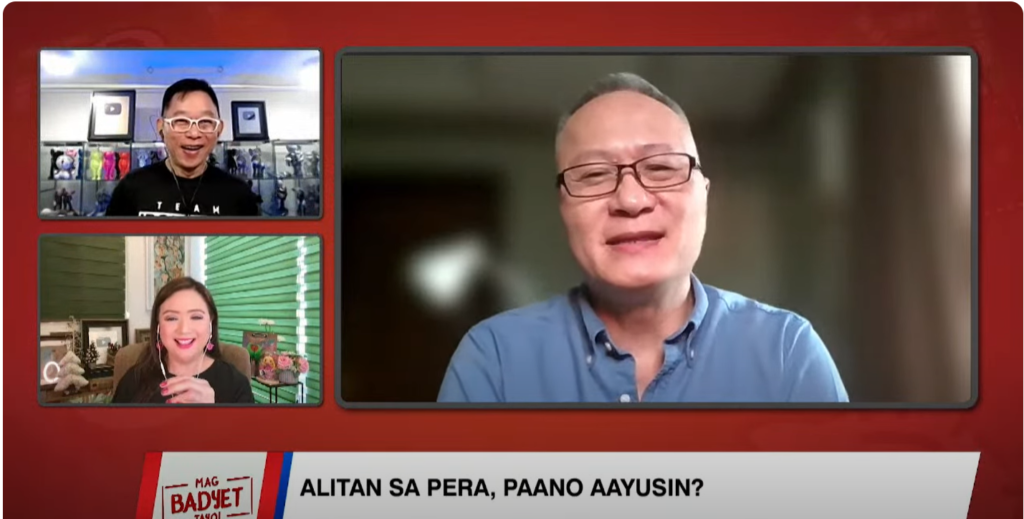
Nathaniel Chua is a member of an international organization called the Association for Contextual Behavioral Science (ACBS). He became chair of the Diversity, Equity, and Inclusion Special Interest Group (DEI-SIG) of ACBS; the first Non-North American to do so.

Nathaniel Chua has a Master’s Degree in Counseling and continues to learn more of the most cutting-edge approaches to working with the human condition.
Below is Nathaniel Chua’s first virtual talk held on November 17, 2023 in front of an international group of therapists from Low or Middle Income Countries (LMIC). He is the first from the Philippines to do this:
What is One Life Only Counseling about?
- You can be assured that your information with be kept completely confidential.
- You will be respected regardless of your religion, gender preference, ethnicity, economic status, and even your personal lifestyle and values. We are LGBTQIA+ friendly!
- Your counselor will not impose their values and beliefs on you.
- We use a scientific model of counseling that has precision, depth, and scope. Below are bullet points to let you understand better what we mean by this:
- By precision we mean that our approach to counseling tells you how these mechanisms of change work. It is not enough to say that a sense of self-awareness is what creates changes in people’s behavior. Our approach tells us how self-awareness works as one step within a set of processes that can lead to lasting change.
- Depth means the approach we use does not conflict with other theories and models of therapy. In fact, many other approaches can be used as forms of treatment towards greater psychological flexibility. Our approach for instance does not conflict with findings in the area of attachment theory, gestalt therapy, psychodynamic therapy to just raise a few examples. It cuts across other levels of analyses.
- Finally, by scope we mean that our approach comes from the discovery of the smallest set of processes that cuts across multiple mental health concerns from anxiety and depression to personality disorders to psychosis, etc. It is a transdiagnostic approach that seeks to understand what many of the symptoms or syndromes come down to, so these processes can be targeted to address many, if not all of the disorders listed in different diagnostic systems.
- We are also probably the only counseling service in the Philippines that follows a certain philosophy of science with certain a priori assumptions about human nature. With this in mind, we offer a holistic consistent approach to life’s challenges that is a-ontological, monistic, and pragmatic.
- Furthermore, ineffective behaviors are addressed by their classes and functions, therefore making our model of therapy parsimonious and much easier to apply to daily living. Most of our clients are empowered to use the skills they learn in therapy to apply to a multitude of challenging situations without having to rush to a therapist to address specific concerns. If you remember Einstein, everything can be explained by one simple equation, E = mc squared! In other words, we do our best to be ACT-Consistent or as some other experts would call it, we practice, ACT Fidelity!
The approach we use is also one that is endorsed by the World Health Organization as an effective psychological tool for coping with any kind of life crises! It can be described as a kind of psychological vaccine that has been found to be effective in improving and promoting mental resilience in the face of many, if not all kinds of life challenges.
Here’s a paraphrase from Dr. Steven C. Hayes in my interview with him on April 5th, 2022:
“Here’s what the World Health Organization, the best public health and scientific group in the world says about this protocol, this extensively tested protocol is helpful for anyone who is stressed, for any reason, in any circumstance.”
Since 2019, we have been very excited to offer this type of a radically different approach to therapy that is not just about relieving symptoms, but also about helping people towards creating lives imbued with meaning and purpose.
Here’s a video about what makes One Life Only Counseling Services different:
You can read the written version of this video through this link: https://www.onelifeonly.net/about/what-makes-one-life-only-counseling-services-different/
Here is a recent interview for an article on Philstar Life featuring Nathaniel Chua and a legal practitioner about marital sexual consent:
https://philstarlife.com/news-and-views/928796-consent-rape-marriage-explainer
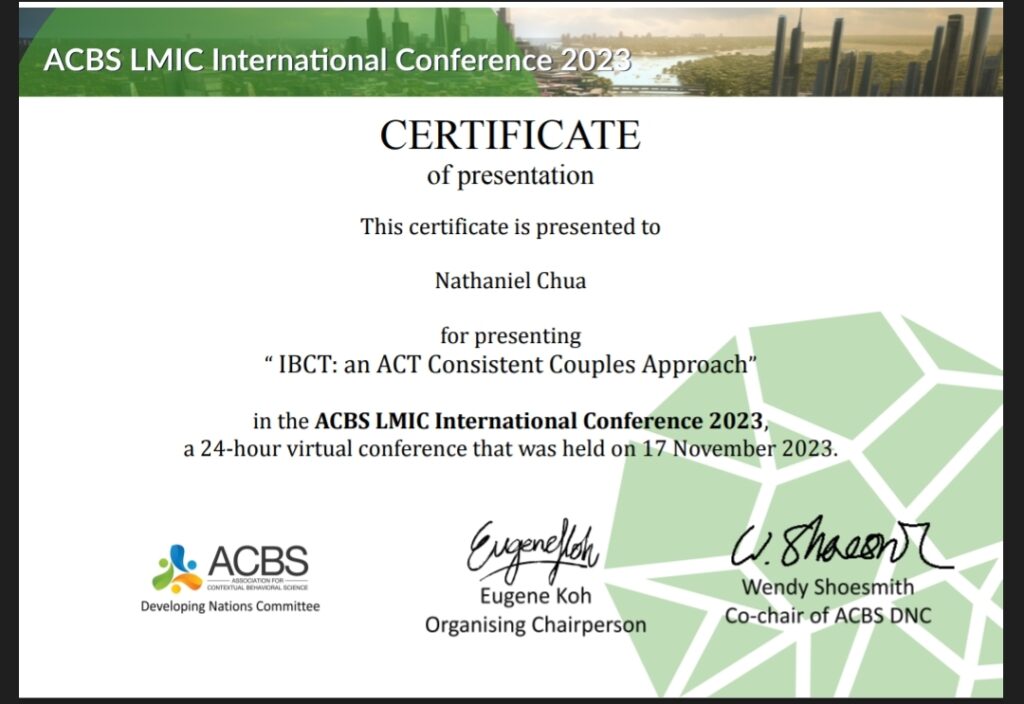

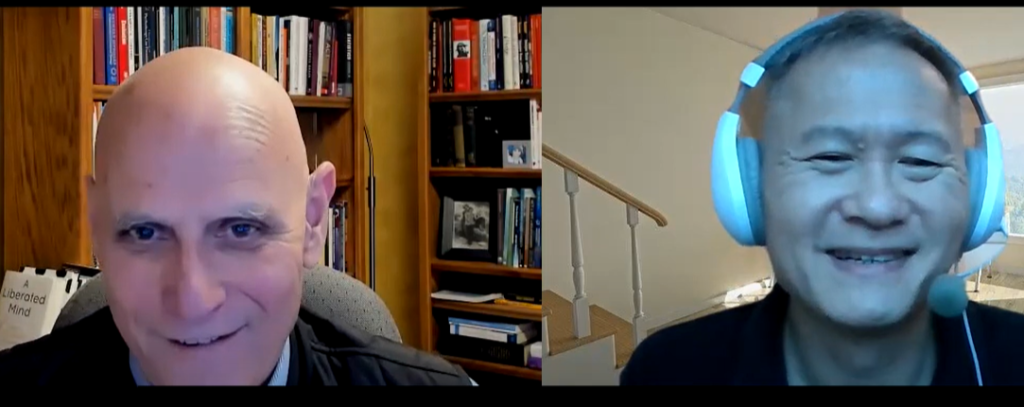
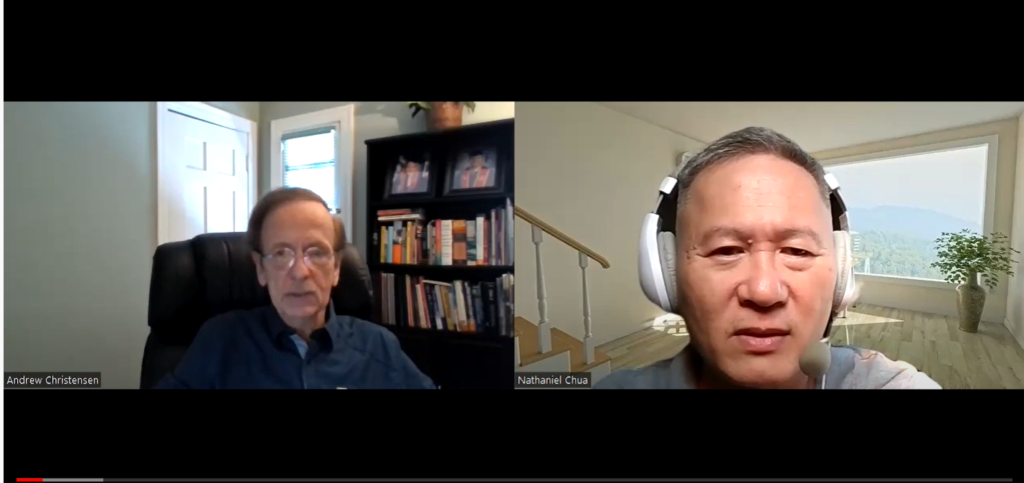
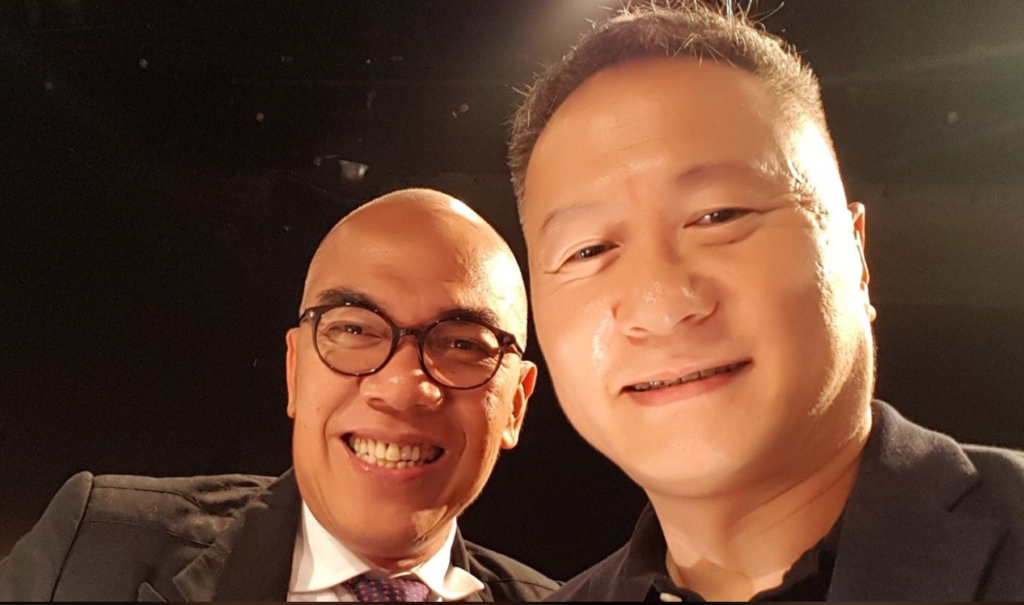

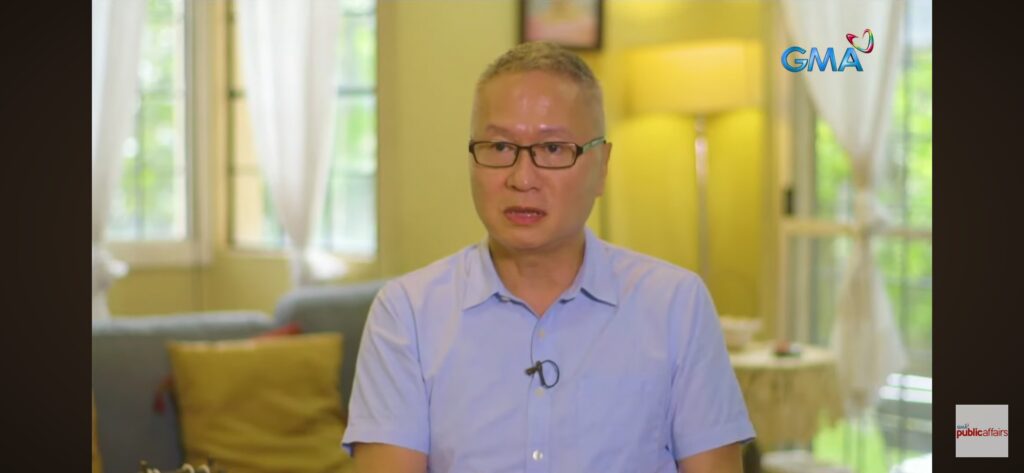
Here a video of Nathan Chua’s appearance on a “Dapat Alam Mo” Episode:
Here’s a solo interview of Nathan Chua with an ACT Matrix Expert and Counselor from the United States, Jacob Martinez:
Interviews with the experts:
Here are two interviews with the two experts that have had a huge impact on my work in recent years. They are with Dr. Steven Hayes and Dr. Andrew Christensen. Here are the videos:
Mind Rules
by Nathan Chua
Don’t touch that! Don’t go there or you’ll hurt yourself! These are just some of the rules that anyone who grows old enough will learn perhaps during the early childhood stages. Such rules are important to ensure our safety and survival. It is precisely this capability that allows us to not always have to rely on our experience to know that something can threaten our physical safety. This has made us as a species such a success. In fact, so successful that we dominate the planet! Ever wondered why such helpless beings as we, with no enlarged fangs or sharp claws, can keep menacing predators away? We have built cities to surround us and keep us away from such threats. Otherwise we’d be dinner for some of them!
These rules however, only work when we are dealing with computer problems, external threats of a physical nature, and when we want to fix a leak in the house. Our minds are pretty useful when it comes to such problems. Unfortunately, our minds are also unable to discern when these rules are handy, and when they are less helpful or even unhelpful. In ACT (Acceptance and Commitment Therapy) linggo we call this phenomenon fusion. It is when we fuse with our thoughts that we run into trouble. Fusing means we either fight away these thoughts or we follow what these thoughts say we should do.
In the first nine years of working in this field, I can see the parallels between this perspective and my work regarding emotions. We need to be able to feel our emotions because they can serve as a guide for better living. From a cognitive behavioral standpoint, it gives us another angle from which to view such phenomena. Why do we explode in anger? Or shrink our lives into depression and anxiety? Where have we learned this strategy that the best way to live our lives is to shirk our unpleasant emotions and grab on to the pleasant ones. The rule states that emotions are bad for your health; get rid of bad feelings.
Here are some ways that we fuse with our thoughts about emotions. We fuse with the idea that some emotions are bad and that they need to be eradicated. Feeling good is not a valued outcome in life. There is certainly nothing wrong with wanting to feel good, but our emotions shift constantly throughout the day. Having that feel good target in our lives can only lead to one frustration over another.
And because we have these evaluations about our feelings, we also derive a new rule that tells us that feelings can become causes of our behavior. As children, it was quite normal for parents to believe that being able to predict their child’s feelings meant having more control of the child’s behavior. They would not want the child to be angry because anger normally leads to physical altercations.
Sadly the rule that some feelings are bad or that some feelings can cause us to do something bad takes its roots from here. The results of such rule-based decisions about our behavior can be constricting to life. Here are some examples:
- I need to feel confident before I can mingle with the people in this party.
- I can’t exercise if I feel lazy.
- I feel depressed so I have to go get some comfort food.
Dr. Russ Harris has a great example of how we can actually see that these rules aren’t true, and even if they were true, they’re not helping us live the lives we are aiming for. If someone pointed a gun at you and told you that you should not feel anxious, how successful do you think you may be? But if someone did the same thing to you and told you to sing and dance while a gun is pointed at your head, you’d probably be more successful.
So next time your mind gives you these thoughts that somehow you should get rid of “bad” feelings first before you can get on with your life, stop for a moment and see how helpful or unhelpful this thought is. Are your feelings stopping you from applying for that promotion? Are your feelings stopping you from calling that person you want to date? Are your feelings telling you that you’re a loser when it comes to losing weight?
The key here is to learn how to handle such difficult feelings that come with life’s challenges, more effectively. We normally do great when things are going well in our lives. It is when we encounter the harsh realities of life that living our lives the way we want to, becomes a challenge.
What makes our difficult emotions more difficult?
by Nathan Chua
All of us go through this. We feel some anxiety, sadness, anger, and so on and seem to dig ourselves deeper into the abyss of unpleasant emotions.
There is a reason why we see ancient traditions of meditation where wise people sit for periods of time. Part of the exercise is to be able to stay with difficult thoughts and the feelings that come along as they sit. In fact the type of meditation that is referred to here is called just sitting.
Contrary to the logic that we so often use so well with problems that are external to us, our struggle lies not in our difficult emotions, but with how we relate to them. As kids, we were trained by our parents or other guardians to show mostly feelings that are labeled as positive. These are rules we learn early when we are first taught to listen to and recognize words that refer to positive or negative consequences to our behaviors. Mom and dad don’t like it when we are sad and crying because such feelings attached to the behavior get in the way of a quiet night watching a movie or a party with friends. Your crying loudly in church or a friendly gathering doesn’t allow for the adults in the room to focus on what is going on.
As a result, we learn to judge our own feelings as bad and in turn judge ourselves as bad too for having such unwanted emotions.
Dr. Russ Harris gives us a list of how our mind judges our feelings and make them worse:
- “Why am I feeling like this?”
- “What have I done to deserve this?”
- “Why am I like this?”
- “I can’t handle this!”
- “I shouldn’t feel like this.”
- “I wish I didn’t feel like this!”
The key here is to be able to describe our feelings instead of evaluating them. Evaluating our feelings means we begin a struggle with them and think that the only way forward to doing that important project is to get rid of such feelings. Let me be okay first before I go on with my day and my plans. I will only go for that promotion or approach that person I want to date when I feel confident enough.
Unfortunately, these judgments against our own feelings become invisible barriers that stand in the way of us pursuing that very thing that would make us feel like we are living in accordance with what we aspire to be. We go from a natural pain that life gives us when we end up in tough situations, to a manufactured pain or a pain that we create for ourselves wherein we become entangled in a war inside our minds…while precious time ticks away. Eventually, that promotion goes to someone else at work or that date gets involved with someone else.
Describing our painful emotions on the other hand, allows us to approach difficult feelings with curiosity. As we do so we are more able to allow such feelings to hang around for a while and then come and go as they please. Note though that we have no control over how long or if these unpleasant feelings will stay or not. The more we try to control them and want to get rid of them, the more they linger and make us end up being at war with our own thoughts and feelings.
Just remember, we are not our histories, they are just a part of us. Hating our own past and wishing they were different means being at war with something we can learn from. Our histories can either enrich our lives or be our worst enemies. We just have to choose.
One Life Only Counseling Services provides an evidence-based, transdiagnostic approach to counseling with proven results in addressing a variety of mental health concerns. We provide both in person and online video counseling as well as soft skills training workshops for corporate and non-profit organizations.
How do we objectify ourselves?
by Nathan Chua
It’s too hard. I can’t. I must. I should or should not. These are just some signs of a person (1) believing in the reasons that the mind offers or (2) signs of objectifying him or herself.
Here’s a test for how reasons may not be as powerful as we think they are. Think of a few reasons why you can’t stop your addiction to binge watching movies or television series online. Now, think of a few reasons why you shouldn’t be wasting countless hours of your life watching them. Now consider this, if reasons did make us do things, then all of us would have been doing the right things all the time because they come from the right reasons. So in effect, reasons are just thoughts and nothing more. It is up to us how we behave whether such reasons exist or not.
And how is it that we objectify ourselves? Let’s take for example someone who was dear to us in our family dies. Here’s where we play the I should or I must game. I should be able to buck up and keep doing what I’m doing. I mustn’t show any emotions for being emotional at this time is inimical to myself and the people surrounding me. If we look deeper, this means that we ought to have a switch inside of us pretty much like a robot or a computer. Our thoughts tell us that we ought to be as efficient and switchable as that desktop in front of us.
Unfortunately, this almost always doesn’t work, because how do we accomplish switching ourselves off? Well, that trip to the bar with flowing alcohol is one way. Others are getting lost in busyness at work or at home, comfort eating, and of course, binge watching. Some of us go to pills that doctors prescribe to get rid of unpleasant feelings. All of these do serve the purpose of making us feel better for a while, but ultimately comes with a pretty huge price tag, a chunk of our lifetime spent on what only matters to make us feel good temporarily, and little or nothing to do with a meaningful and purposeful life. Like how empowering does it feel to have a bunch of pills in your pocket to kill your depression or anxiety?
We also objectify ourselves with the roles that we create for ourselves. I have always been the wedge that kept mom and dad away from getting at each other’s throats. I have always been the successful migrant who keeps the family finances together. I would always be the caretaker of the clan. These are just some of the many roles that stick to us like cattle branding.
We even objectify ourselves by the values we aspire to live by. We use our values to bludgeon ourselves. I must always be kind and generous. I have no option but to say yes all the time because to say no means I would be a bad person or a hypocrite.
The one thing that most of us forget regularly and quite often, is that the challenge of this life is not being in control of our inner workings all the time like a computer or a robot.
The challenge is being a person, being human.
You and I are human because we hurt when we lose someone we love. You and I are human when we make mistakes that make us feel we haven’t lived consistently with what truly matters to us. You and I are human because we exist beyond what our minds tell us who we are. You and I are human because we do things that our rational minds cannot comprehend. And that something incomprehensible is the thing that is most akin to being human, and that’s none other than our capacity to choose the hard stuff for no other reason but love, and caring for ourselves and others.






